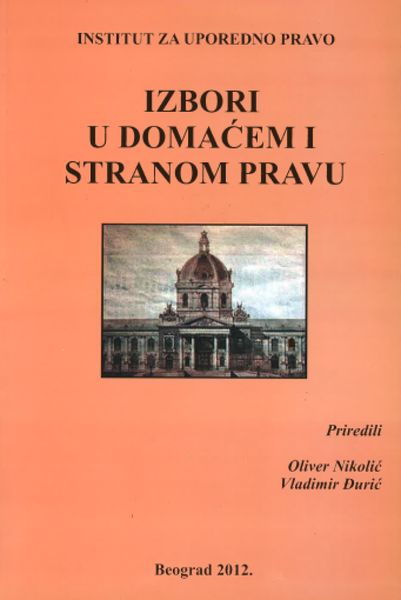Odnos građana i narodnih poslanika nakon izbora
Relation between Citizens and MPs After Elections
Author(s): Slobodan Vukadinović
Subject(s): Public Administration, Electoral systems, Political behavior
Published by: Institut za uporedno pravo
Keywords: Elections; voters; citizens; public hearings; proposals; assembly working body sessions out of the Parliament headquarter; MPs’ offices in provinces; right to propose law
Summary/Abstract: Although elections enable voters to shape the political structure of a representative body, the conduct of elections should not be the end - but the beginning of continuous communication between the citizens and parliamentarians. Therefore, the goal of this article is to explore and identify institutes, which would facilitate the relationship and communication between citizens and members of parliament after elections. The focus of the paper is on the analysis of the Serbian parliamentary practice, and the assessment of the implementation of the institutes of Parliamentary Law, while indicating their implementation through the current practice at the National Assembly of the Republic of Serbia. In addition to public hearings, assembly working body sessions out of the Parliament headquarter, opening of the MPs’ offices in provinces, submission of the applications and proposals, citizens’ participation in the legislative process, the paper points out important problems that, in the Serbian parliamentarian practice, prevent, the realization of constitutional right of voters to propose laws. The article observes the tendency, dominated in the last few years, that endeavors to “open” the National Assembly (as an institution) to the citizens, according to the good practice implemented and proved in foreign parliaments. However, this does not imply an adequate contact between citizens and Members of Parliament (individually). After indicating the standards of the Inter-Parliamentary Union and results of recent global surveys, the conclusion of the paper identifies opportunities for further parliamentary development that would support the improvement of relations between citizens and their representatives in the Parliament after the elections.
Book: Izbori u domaćem i stranom pravu
- Page Range: 240-272
- Page Count: 33
- Publication Year: 2012
- Language: Serbian
- Content File-PDF

